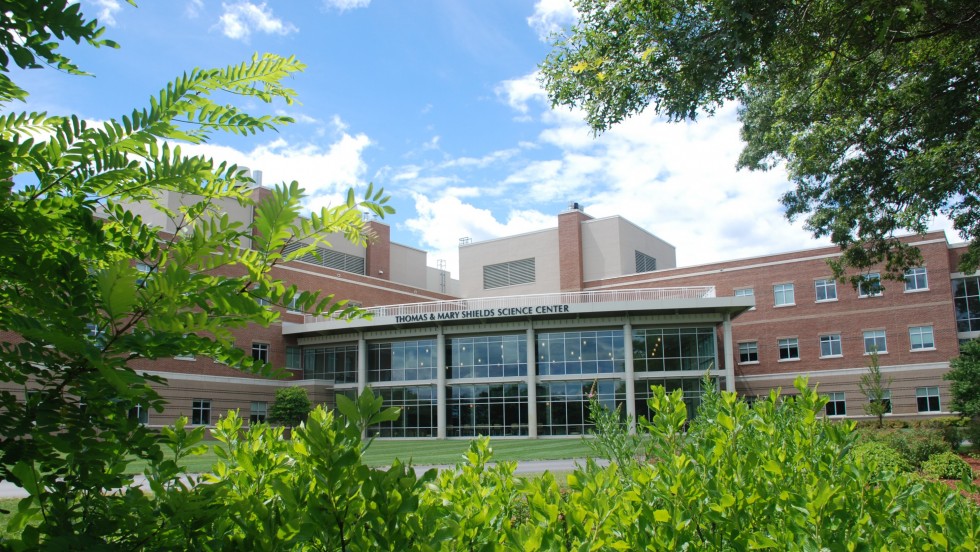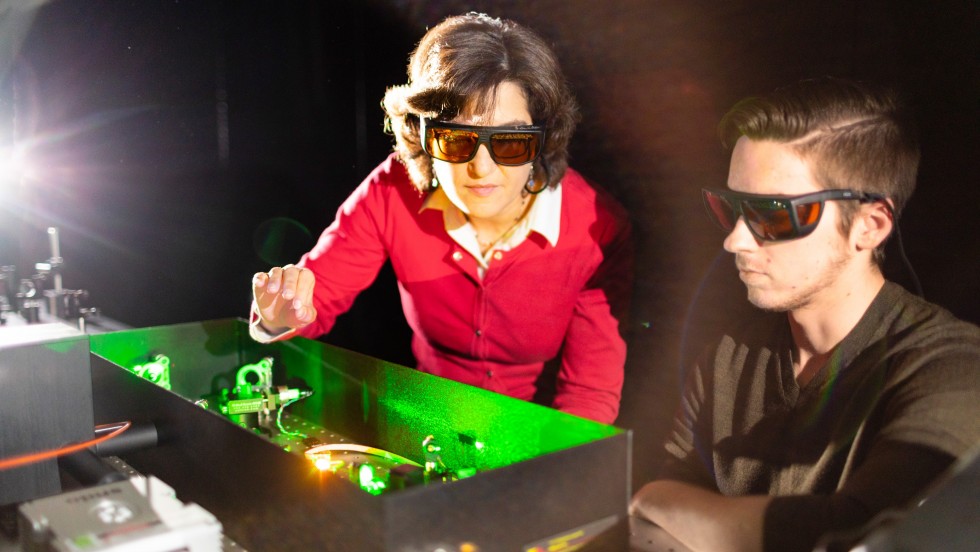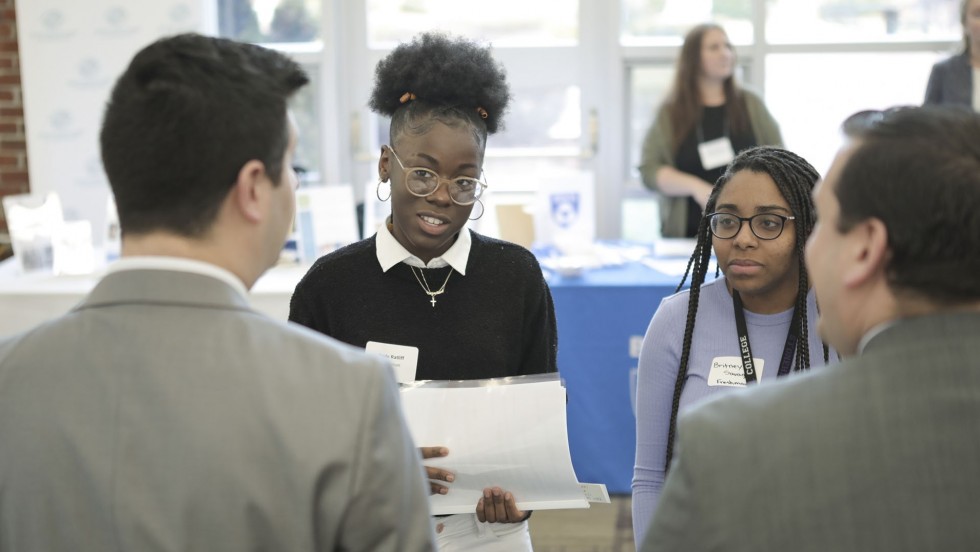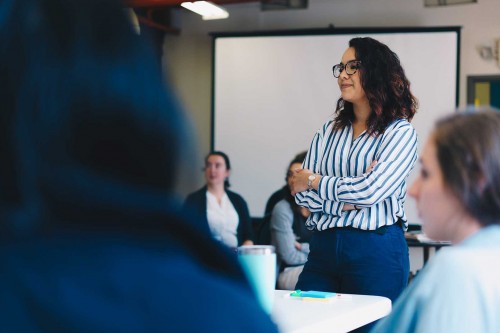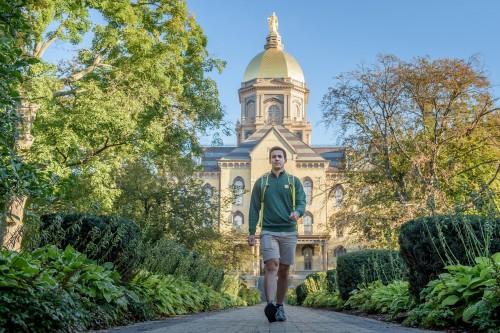Engineering Program
Stonehill’s Engineering Program is grounded in the practice of humanistic engineering and offers bachelor of science degrees in computer and electrical engineering as well as minors in both disciplines.
Engineering with a focus on aiding humanity
Professor Hassan Bajwa’s vision for Stonehill’s newest academic program centers on developing engineers who can help solve the biggest problems threatening humans and their planet.
A Unique Focus on Emerging Field of Humanistic Engineering
The humanistic engineering programs at Stonehill prepare students for leadership, service and global citizenship. Consistent with the mission of the College, the engineering curriculum fosters critical thinking and emphasizes the understanding of societal and human needs.
Our engineering students are expected to go beyond traditional STEM content and work with faculty and community partners to address the challenges faced by our community and society.
In addition to core engineering courses appropriate to program area, all engineering students are required to take two humanistic engineering courses —Sustainable Engineering Design and Engineering for Public Good. The sequence of two humanistic engineering courses, offered during junior year, combined with two semester of sustainable development capstone project course, sets Stonehill’s program apart from traditional engineering programs.
Degree Options
The Computer Engineering program at Stonehill College seeks to provide students with the skills and background needed to thrive in their profession while also giving them the intellectual flexibility that comes from a well-rounded liberal arts education.
The Electrical Engineering program at Stonehill College seeks to provide students with the skills and background needed to thrive in their profession while also giving them the intellectual flexibility that comes from a well-rounded liberal arts education.
The Computer Engineering minor is available to all students at the College except those pursuing a major in Electrical Engineering. It requires a minimum of six courses offered as part of the Computer Engineering major. Four courses must be unique to the minor and may not count toward the fulfillment of majors or additional minors. The Computer Engineering minor is not intended to provide specialization within an engineering discipline but is designed to complement different majors offered at Stonehill College. Non-Engineering majors are allowed to pursue a minor in Computer Engineering, provided that the course pre-requisites are met.
The Electrical Engineering minor is available to all students at the College except those pursuing a major in Computer Engineering. It requires a minimum of six courses offered as part of the Electrical Engineering major. Four courses must be unique to the minor and may not count toward the fulfillment of majors or additional minors. The Electrical Engineering minor is not intended to provide specialization within an engineering discipline but is designed to complement different majors offered at Stonehill College. Non-Engineering majors are allowed to pursue a minor in Electrical Engineering, provided that the course pre-requisites are met.
Offered in partnership with our sister schools, the 3+2 Engineering Program is a potential option for students to study three years at Stonehill for a science degree and two years at our sister schools, the University of Notre Dame and King’s College, for an engineering degree in aerospace, chemical, civil, computer, electrical, environmental and mechanical engineering.
Look at the UN’s Sustainable Development Goals for 2030, [which include] no poverty, no hunger, sustainable cities, [and] affordable and clean energy. Engineers are the ones who will lead us to reach these goals, so we must prepare our students to think about their work in the context of solving society’s most intractable problems.
Stonehill Undergraduate Research Experience (SURE)
Student Success Collaborative
Humanistic Engineering
The humanistic engineering programs at Stonehill College prepare our students for the position of leadership, service, and global citizenship. Consistent with the mission of the institution, the engineering curriculum is developed to foster critical thinking, and understanding society and human needs.
The engineering curriculum is designed to meet ABET criteria and includes topics that integrate humanistic prospective and approaches to engineering. Our engineering students are expected to go beyond traditional STEM content and work with faculty and community partners to address the challenges faced by our community and society.
In addition to the core engineering courses, appropriate to program area, all engineering students are required to take two humanistic engineering courses—"Sustainable Engineering Design” and “Engineering for Public Good”. The sequence of two humanistic engineering courses, offered during junior year, when combined with two semester of sustainable development capstone project course, sets Stonehill’s program apart from any traditional engineering program.
Sample Humanistic Engineering Courses
Humanistic Engineering Design Sequence
Design For Public Good: Writing in the Disciplines
Engineering for Public Good: Social Scientific Inquiry (SSI)
Related Stories
-

Sara Boukdad ’15, capitalized on her opportunity to earn degrees in environmental science and environmental engineering through Stonehill’s 3+2 Dual-degree partnership with the University of Notre Dame.
-

Dual-degree program with Stonehill's sister school, the University of Notre Dame expands students’ perspectives and post-graduate opportunities.
Contact Information



